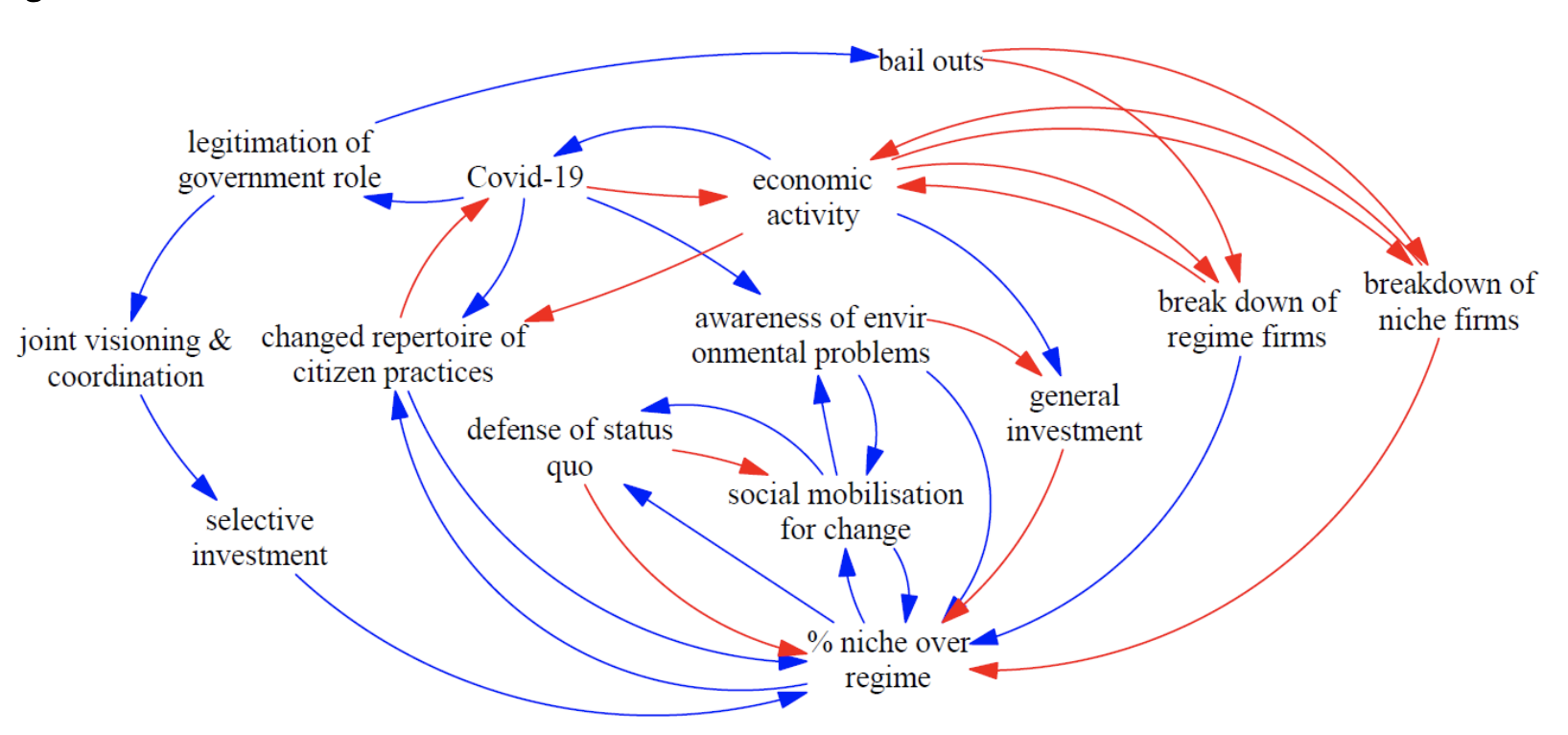Covid-19, changing social practices and the transition to sustainable production and consumption

Covid-19, changing social practices and the transition to sustainable production and consumption
by Boons, F., Browne, A., Burgess, M., Ehgartner, U., Hirth, S., Hodson, M., Holmes, H.,
Hoolohan, C., MacGregor, S., McMeekin, A., Mylan, J. Oncini, F., Paterson, M., Rödl, M.,
Sharmina, M., Warde, A., Welch, D., Wieser, H., Yates, L., Ye, C.
Sustainable Consumption Institute at the University of Manchester
May 2020
The paper seeks to addresses two questions, here with their high level answers:
What social practices have changed as a result of Covid-19, and what is the likelihood that such practices, and their alleged beneficial sustainability impacts, are retained after the immediate crisis subsides? II. What conditions need to be met to make such retained practices part of an accelerated transition to more just and ecologically sustainable systems of provision?
Our research confirms a basic assumption of theories of practice is that after a period of disruption people will mostly return to their old routines and habits, seeking to perform practices in much the same ways as before. Such bouncing back occurs, unless:
- they have learned new practices to which they have become positively attached in the interim;
- the infrastructure and facilities supporting earlier practices are changed such that old habits are no longer possible or are less congenial. Or, new equipment re-directs attention towards new practices;
- people lack the personal resources, health or finance to return to previous ways of acting;
- new regulations and new prohibitions eliminate some previous practices and enhance or promote others/new ones;
- a changed cultural context alters how people value or conduct activities;
- adjustments in other, adjacent and more distant, practices have knock-on effects.
What conditions need to be met to make such retained practices part of an accelerated transition to more just and ecologically sustainable systems of provision?
To facilitate thinking about the future we pick three base scenarios and reflect on how these can be expected to materialise in the wake of the pandemic. These are:
- a recovery back to normal, based in the inherent resilience of the political, economic and social fabric of our societies,
- (a collapse of society as we know it due to failure to effectively respond to the crisis and
- a transition to a qualitatively new form of society, based on the recognition that the disruptive effect of a crisis provides an opportunity for such change. The latter we develop along two lines: a sustainable society (in its various forms, including a circular economy and net zero carbon economy) and a digitalisation of society. […]
The likelihood of one of these four imagined futures materialising is dependent on individual and collective choice and the way it anticipates and responds to local and global socio-ecological conditions. Therefore, although it is not possible to control the future, understanding how changed practices may lead to a qualitatively different, more just and sustainable society after the pandemic subsides requires taking into account the wider social and economic dynamics that provide the context for these practices (see figure above) as well as further developing skills, resources and insights in that direction.



